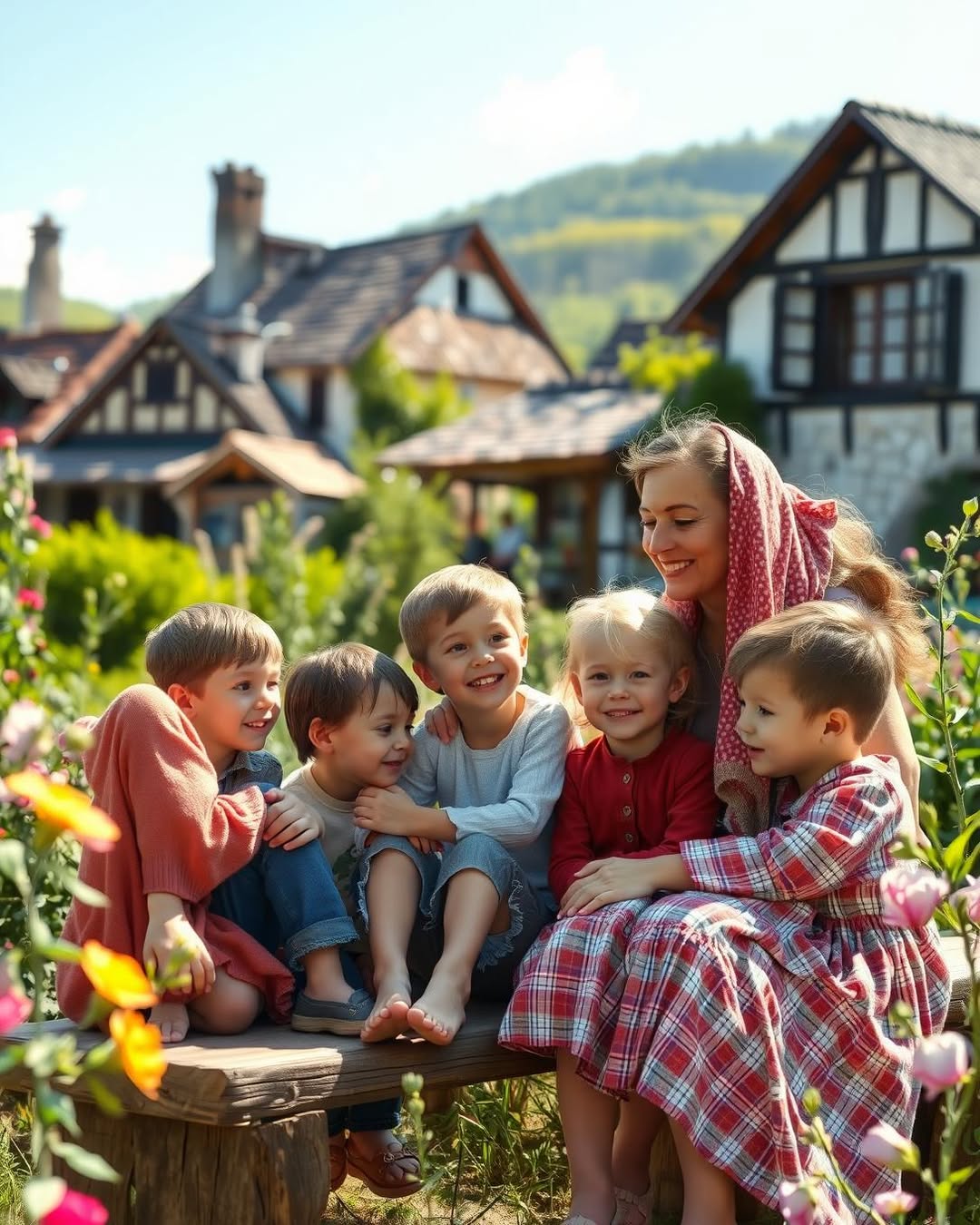I was only six when I lost my mother. She was giving birth to her third child. I remember everything—the cries of pain, the panic in the neighbors’ voices, the way her screams turned into silence. That silence would stay with me for years.
No one called for a doctor. No one drove her to a hospital. Why? I’ll never understand. Was it the distance to town? The condition of the roads? Or just… life, happening too fast for anyone to act? She died that day, leaving behind two little girls and a fragile newborn—Olive.
After her death, my father was a shell of the man he once was. He had no close family nearby—everyone was far away, in the West. Left with three children, the villagers insisted he remarry quickly. A week after Mom’s funeral, he came home with a bride.
“She’s your new mother,” he announced.
But I was still grieving. The scent of Mom lingered in the house, her touch was on every dress we wore. And now here was this woman—arm-in-arm with Dad, perfume and laughter, slightly drunk. I was angry in a way I couldn’t explain. She looked at us and said:
“If you call me ‘Mom,’ I’ll stay.”
I stepped forward, holding my sister’s hand.
“She’s not our mom,” I said. “Our mom died.”
She scoffed, muttered something cruel, and stormed out. My father stood frozen in the doorway. He didn’t chase her. Instead, he came back inside, held us both, and cried. Really cried. Even little Olive whimpered in her crib, as if she could feel the grief in the room.
He stayed with us for two more weeks, then went back to work in the forest. That was his only way to earn a living. He arranged for neighbors to check on us, left money, and asked another family to care for Olive. And then he was gone.
We were left in a quiet, cold house. A neighbor came by now and then to cook or light the stove, but she had her own family. We were mostly on our own—afraid, half-fed, and lonely. That’s when the village began talking. The kids needed someone. A woman. A heart.
They remembered a distant relative of one of the villagers—a young woman named Zinnia. She’d lost her baby and couldn’t have more children. Or maybe her husband had left her. No one knew exactly. But she was alone. Someone found her address and sent a letter.
Weeks passed. Then one morning, Zinnia arrived.
I woke to the clatter of dishes. The smell of pancakes. Someone was humming softly. I crept out with my sister and peered into the kitchen. There she was, wiping counters and stirring batter like she belonged there.
“Well, come on, my little blondies,” she called cheerfully. “Time to eat!”
We were startled—but something in her voice melted our fear. We sat at the table without hesitation and ate pancakes until our stomachs hurt. She washed us, cleaned the house, folded laundry, and then she left. But the next day, she came again.
Day by day, the house felt warmer. Familiar. She didn’t force us to call her “Mom.” Instead, she said:
“Call me Aunt Zinnia. That’s just fine.”
Three weeks passed, and she kept showing up. Vera, my younger sister, adored her. I was more cautious. Zinnia didn’t laugh much. She was tidy and proper—nothing like our real mother, who danced in the kitchen and sang to Dad. But Zinnia stayed. She didn’t leave.
When Dad returned from the forest, he was shocked.
“Looks like you girls are living like princesses,” he said.
We told him about Zinnia. He chuckled, got cleaned up, and the next morning brought her home himself. She came in quietly, almost shy. That was the moment I whispered to Vera:
“She’s good. Let’s call her Mom.”
We both yelled: “Mama! Mama’s here!”
Zinnia burst into tears and hugged us. Later, she went with Dad to fetch Olive. She became that baby’s mother in every sense of the word. Olive grew up thinking Zinnia had always been there. Even Vera forgot our real mom. But I remembered. I always did.
I overheard Dad once, talking to a photo on the wall: “Why did you go? You took all the light with you.”
I didn’t stay home long after that. From the fourth grade, I attended boarding school. Then technical college. Zinnia never wronged me, never raised a hand or a cruel word—but I kept a distance. Maybe it was grief. Maybe I was stubborn. Maybe I was afraid to love again.
But I’ve come to believe I became a midwife not by accident. I couldn’t save my mother, but maybe I can save others.
And every time I hold a newborn in my arms, I remember how Zinnia came to us—quietly, gently—and made us feel safe again.
She wasn’t the mother I was born to.
But she was the mother I needed.
